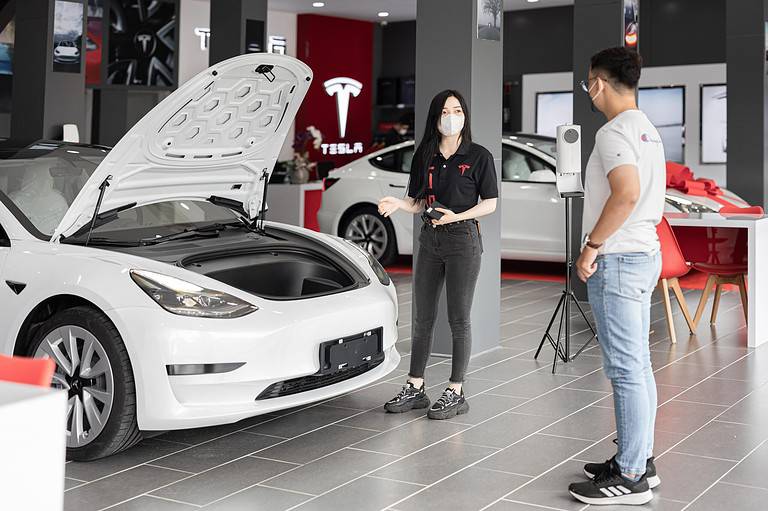Elon Musk, who implemented a no-remote-work policy at Tesla following its acquisition of Twitter, has long expressed his distaste for remote work arrangements. However, during an interview, Musk’s fervour was on full display as he argued that working remotely hindered productivity.
“I firmly believe that people are more productive when they’re physically present,” Musk passionately told CNBC’s David Faber.
In June 2022, Tesla employees were met with a strict return-to-office mandate, warning that noncompliance would result in termination. The expectation was at least 40 in-office hours per week; anything less was deemed “phoning it in.”
Stringent
Workers say Tesla had been relatively open to remote work before the pandemic. However, Musk’s stance changed significantly following the onset of COVID-19, along with his resistance to precautionary measures like mask-wearing. Additionally, limited space and resources at Tesla’s San Francisco offices posed challenges for returning employees.
After acquiring Twitter and undergoing significant workforce reductions, Musk imposed a similarly stringent policy. The interview took an intense turn when Faber casually mentioned this policy, prompting Musk to unleash his frustration.
“Enough with the holier-than-thou attitude regarding remote work,” Musk snapped, “because they’re insisting others not work remotely while they do.”
Musk rambled on
He said that office workers shouldn’t have that privilege if people delivering food and constructing buildings couldn’t work remotely. Musk characterized the situation as “messed up” and a “matter of ethics.”
“At Tesla, SpaceX, or Twitter, if you want to be part of the team, you need to be in the office every day,” Musk declared resolutely.
With his strong stance against remote work, Elon Musk continues to champion the power of in-person collaboration and sees it as an essential aspect of company culture in his various ventures. IBM CEO Arvind Krishna recently took a similar stance, insisting that structurally doing your work from home can “hurt your career.”
